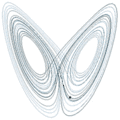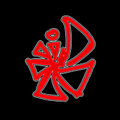Template:Selected anniversaries/April 16: Difference between revisions
No edit summary |
No edit summary |
||
| Line 6: | Line 6: | ||
File:Gottfried Wilhelm Leibniz.jpg|link=Gottfried Wilhelm Leibniz (nonfiction)|1673: [[Gottfried Wilhelm Leibniz (nonfiction)|Leibniz]] wrote to Oldenburg about series: "I conjecture that Mr. Collins himself does not speak of these summations of infinite series because he brings forward the example of the series 1/2, 1/3, 1/4, 1/5, 1/6, ... which if it is continued to infinity cannot be summed because the sum is not finite, like the sum of the triangular numbers, but infinite. But now I am cramped by the space of my paper." | File:Gottfried Wilhelm Leibniz.jpg|link=Gottfried Wilhelm Leibniz (nonfiction)|1673: [[Gottfried Wilhelm Leibniz (nonfiction)|Leibniz]] wrote to Oldenburg about series: "I conjecture that Mr. Collins himself does not speak of these summations of infinite series because he brings forward the example of the series 1/2, 1/3, 1/4, 1/5, 1/6, ... which if it is continued to infinity cannot be summed because the sum is not finite, like the sum of the triangular numbers, but infinite. But now I am cramped by the space of my paper." | ||
File:Red Eyes Fighting.jpg|link=Red Eyes | File:Red Eyes Fighting.jpg|link=Red Eyes|1736: Philosopher and crime-fighter ''[[Red Eyes]]'' prevents gang of [[Crimes against mathematical constants|math criminals]] from kidnapping [[Gottfried Wilhelm Leibniz (nonfiction)|Leibniz]] and [[Isaac Newton (nonfiction)|Newton]]. | ||
||1682 – John Hadley, English mathematician, invented the octant (d. 1744) | ||1682 – John Hadley, English mathematician, invented the octant (d. 1744) | ||
Revision as of 07:17, 16 April 2018
1495: Mathematician and astronomer Petrus Apianus born. His works on cosmography, Astronomicum Caesareum (1540) and Cosmographicus liber (1524), will be extremely influential in his time.
1673: Leibniz wrote to Oldenburg about series: "I conjecture that Mr. Collins himself does not speak of these summations of infinite series because he brings forward the example of the series 1/2, 1/3, 1/4, 1/5, 1/6, ... which if it is continued to infinity cannot be summed because the sum is not finite, like the sum of the triangular numbers, but infinite. But now I am cramped by the space of my paper."
1736: Philosopher and crime-fighter Red Eyes prevents gang of math criminals from kidnapping Leibniz and Newton.
1705: Physicist and mathematician Isaac Newton knighted by Queen Anne at Trinity College.
1958: Chemist and X-ray crystallographer Rosalind Franklin dies. She made contributions to the discovery of the molecular structure of DNA (deoxyribonucleic acid).
1958: Combat physician and alleged time-traveller Asclepius Myrmidon prevents Colonel Zersetzung from detonating the Tybee Bomb.
1958: The United States military announces that the search for hydrogen bomb known as the Tybee Bomb was unsuccessful.
1962: Brainiac Explains lecture series explains why Colonel Zersetzung failed to detonate the Tybee Bomb.
2008: Mathematician Edward Lorenz dies. He introduced the strange attractor notion, and coined the term butterfly effect.
2008: Lorenz system diagram says it "owes everything to Papa Lorenz."
2017: Math photographer Cantor Parabola attends Minicon 52, taking a series of photographs with temporal superimpositions from Minicons 51 and 53.
Signed first edition of Red Spiral 3 sells for $150,000 in charity auction to benefit victims of crimes against mathematical constants.












